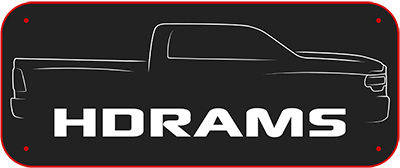KingRanch27
New Member
- Joined
- Mar 30, 2024
- Messages
- 5
- Reaction score
- 4
Hey Guys,
I'm a bit of a towing newb, and need a little guidance.
I just purchased a 2024 RAM 3500 dually 6.7 SO truck, and I plan to use it (partially) to tow a gooseneck equipment trailer for our ranch. For context, the truck is NOT registered as a Texas Farm Truck, as I'll also be towing a 5th wheel across the country at some point.
That said, I am trying to determine how much trailer I can buy and still be legal as a non-CDL driver. As I understand it, the GVWR of the truck AND trailer cannot exceed 26,001lbs but the problem I'm (seemingly) running into is that really limits the size of gooseneck I can legally tow.
I can't even find a GVWR rating on the doorjam stickers (just payload, which is 4939lbs), but with this being a DRW truck I'm left to assume it's probably 14,000lbs GVRW. That would seemingly limit me to a 12,000lb GVRW trailer which really won't haul much in terms of equipment (i.e. if I wanted to tow a heavier skid steer).
Am I missing something here? I see duallys towing 30-40ft goosenecks all the time, and there's no way all of them are hot shot drivers.
tl;dr - New dually truck, and need help determining how big of a GVWR trailer I can legally put behind this thing.
I'm a bit of a towing newb, and need a little guidance.
I just purchased a 2024 RAM 3500 dually 6.7 SO truck, and I plan to use it (partially) to tow a gooseneck equipment trailer for our ranch. For context, the truck is NOT registered as a Texas Farm Truck, as I'll also be towing a 5th wheel across the country at some point.
That said, I am trying to determine how much trailer I can buy and still be legal as a non-CDL driver. As I understand it, the GVWR of the truck AND trailer cannot exceed 26,001lbs but the problem I'm (seemingly) running into is that really limits the size of gooseneck I can legally tow.
I can't even find a GVWR rating on the doorjam stickers (just payload, which is 4939lbs), but with this being a DRW truck I'm left to assume it's probably 14,000lbs GVRW. That would seemingly limit me to a 12,000lb GVRW trailer which really won't haul much in terms of equipment (i.e. if I wanted to tow a heavier skid steer).
Am I missing something here? I see duallys towing 30-40ft goosenecks all the time, and there's no way all of them are hot shot drivers.
tl;dr - New dually truck, and need help determining how big of a GVWR trailer I can legally put behind this thing.
